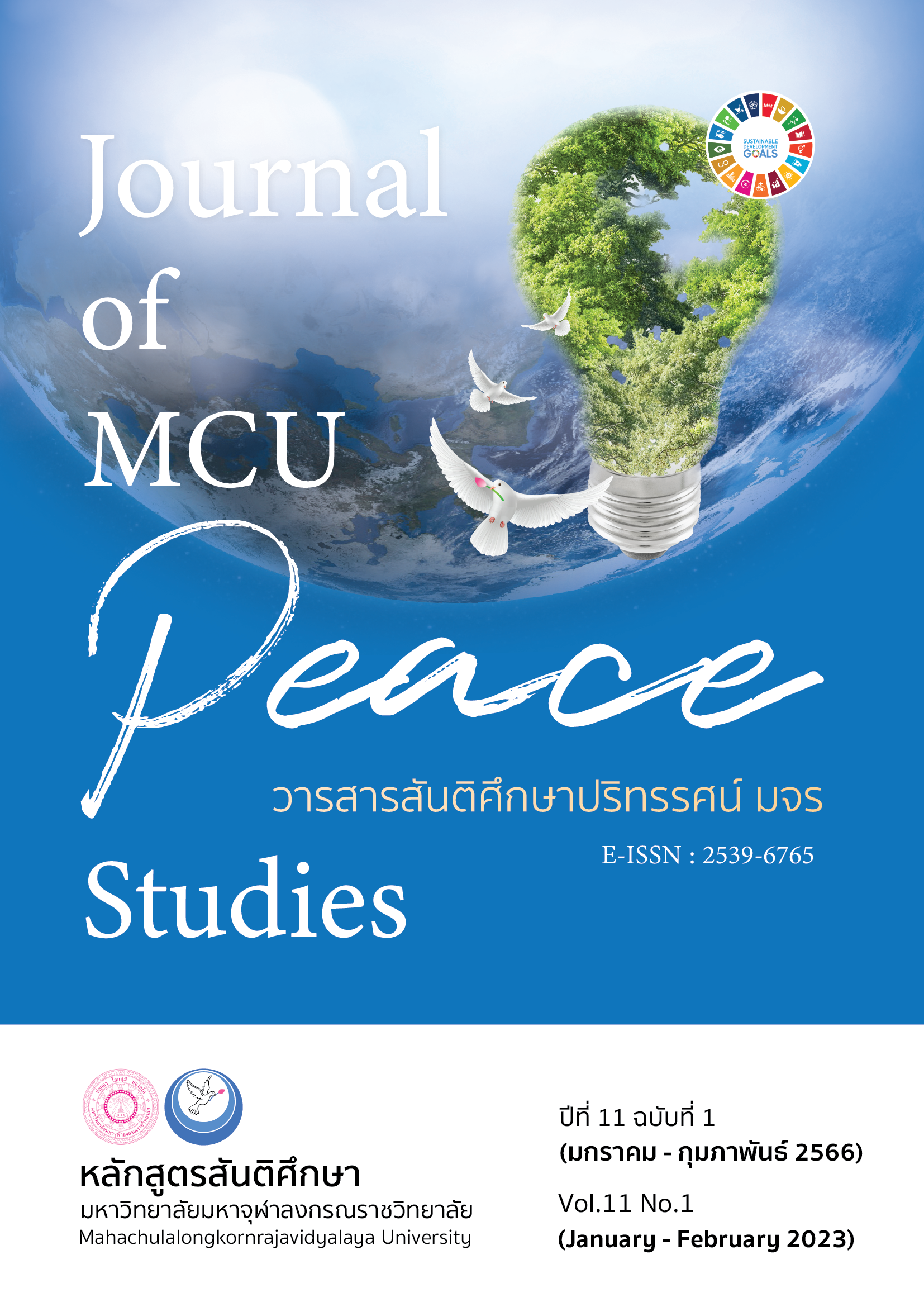ผลของโปรแกรมเสริมสร้างสมรรถนะด้านการจัดโปรแกรมนันทนาการสำหรับผู้นำนักศึกษา มหาวิทยาลัยเทคโนโลยีราชมงคลในเขตภาคกลาง
Main Article Content
บทคัดย่อ
บทความวิจัยนี้ มีวัตถุประสงค์ 1) เพื่อพัฒนาโปรแกรมเสริมสร้างสมรรถนะผู้นำนันทนาการ สำหรับผู้นำนักศึกษา และ 2) เพื่อศึกษาผลของการใช้โปรแกรมฯ โดยแบ่งออกเป็น 3 ระยะ คือ ระยะที่ 1 ศึกษาข้อมูลสภาพ ความต้องการจำเป็น และแนวทางในการพัฒนาโปรแกรมฯ ระยะที่ 2 พัฒนาโปรแกรมฯ และระยะที่ 3 ศึกษาผลของการใช้โปรแกรมฯ ประชากรที่ใช้ได้แก่ ผู้นำนักศึกษามหาวิทยาลัยเทคโนโลยีราชมงคลในเขตภาคกลาง จำนวน 5 สถาบันๆ ละ 30 คน เครื่องมือที่ใช้ประกอบด้วย โปรแกรมเสริมสร้างเสริมสร้างสมรรถนะผู้นำนันทนาการ สำหรับผู้นำนักศึกษา โดยมีแบบวัดประเภทต่างๆ จำนวน 6 ประเภทเป็นส่วนหนึ่งของโปรแกรมฯ หาคุณภาพเครื่องมือที่ใช้ในการวิจัยโดยใช้ผู้เชี่ยวชาญ จำนวน 7 คน ในการประเมิน และนำข้อมูลจากการวิจัยมาวิเคราะห์ข้อมูลโดยใช้ค่าร้อยละ ค่าเฉลี่ย ค่าส่วนเบี่ยงเบนมาตรฐาน และการทดสอบค่าที แบบ Dependent Samples t-test
ผลการวิจัยพบว่า 1) โปรแกรมฯ มีเนื้อหาการเรียนรู้เกี่ยวกับสมรรถนะด้านการจัดโปรแกรมนันทนาการ 4 สมรรถนะหลัก โดยหน่วยการเรียนรู้มีจำนวน 8 สัปดาห์ๆ ละ 3 ชั่วโมง มีเครื่องมือที่ใช้วัดและประเมินผลในโปรแกรม จำนวน 6 เครื่องมือ 2) ผลการทดลองโปรแกรมฯ พบว่า กลุ่มทดลองมีความรู้ความเข้าใจ ทักษะ ทัศนคติ และผลงานการปฏิบัติสูงกว่าก่อนการเข้าร่วมโปรแกรม อย่างมีนัยสำคัญทางสถิติที่ระดับ .05 3) หลังการใช้โปรแกรมกลุ่มขยายผลมีความรู้ความเข้าใจ ทักษะ ทัศนคติ และผลงานการปฏิบัติสูงกว่าก่อนการเข้าร่วมโปรแกรมฯ อย่างมีนัยสำคัญทางสถิติที่ระดับ .05 และมีความพึงพอใจต่อการเข้าร่วมโปรแกรมฯ อยู่ในระดับมากที่สุดในทุกสถาบัน กลุ่มขยายผลทั้ง 4 สถาบันมีความรู้ความเข้าใจ ทักษะ ทัศนคติ และผลงานการปฏิบัติ ไม่แตกต่างกัน อย่างมีนัยสำคัญทางสถิติที่ระดับ .05
Article Details

อนุญาตภายใต้เงื่อนไข Creative Commons Attribution-NonCommercial-NoDerivatives 4.0 International License.
ทัศนะและความคิดเห็นที่ปรากฏในบทความในวารสาร ถือเป็นความรับผิดชอบของผู้เขียนบทความนั้น และไม่ถือเป็นทัศนะและความรับผิดชอบของกองบรรณาธิการ ยินยอมว่าบทความเป็นลิขสิทธิ์ของวารสาร
เอกสารอ้างอิง
Austin, D. (2004). Introduction to Therapeutic Recreation. IL: Sagamore Publishin.
Department of Physical Education. (2019). Recreation Leader. (2nd ed.). Bangkok: S Offset Graphic Dsing.
Doungseesai, K. (2020). Financial Operations Manual for Student Activities. Patumtanee: Rajamangala University of Technology Thanyaburi.
Gulthawatvichai, T. (2011). Recreations. Bangkok: Chulalongkorn University Printing House.
Office of the Higher Education Commission. (2014). On the Path to Develop Students to Become Global Citizens Challenges, Opportunities and Development Guidelines Synthesize Lessons from the Results of Academic Seminars. in APSSA, Seminar on the Development of Ideal Thai Students.Bangkok:Office of the Higher Education Commission.
Phosee, R. (2006). Creation and Quality of Research Tools. Uttaradit: Uttaradit Rajabhat University.
Purksuwan, K. (2018). Recreation Leader. Bangkok: Chulalongkorn University Printing House.
Rossman, J., & Mckinney, R. (2000). The Official Study Guide for The Certified Park and Recreation Professional. Virginia: Nation Recreation and Park Association.
Schaumleffel, A., & Backlund, A. (2009). Program Leaders Intention to Process Recreation Experience to Achieve Targeted Outcomes. Managing Leisure, 14(4), 141-160.
Somkana, W. (2016). Leisure Education to Promote the Quality of Life among Women of Working Age. (Doctoral Dissertation). Srinakharinwirot University. Bangkok.
Tanyawong, T. (2008). The Development Recreation Model for Enhancing Leadership of Recreation Leader. (Doctoral Dissertation). Srinakharinwirot University. Bangkok.
UNICEF Thailand. (2020). Thailand Urgently Needs to Empower Its Young People with the Knowledge and Skills They Need in Order to Shape the Future of the Nation. Retrieved October 15, 2017, from https://www.unicef.org/thailand/th
Veerangkorn, J. (2011). An Analysis of the Achievement of the Modern Graduate Program. in Kasetsart University, The 44th Academic Conference, Kasetsart University. Bangkok: Kasetsart University.
Willer, D. (1986). Scientific Sociology: Theory and Method. NJ: Prentice-Hall.
Williams, A. (2003). An Exploratory Study of the Impacts of Tourism on Resident Outdoor Recreation Experiences. Journal of Park and Recreation Administration, 21(4), 30-49.


